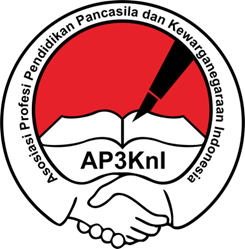The Factors of Social Strengths and Weakness Faced to A Construction Process of Social Support of Tuberculosis’s Sufferer
DOI: https://doi.org/10.26618/jed.v7i2.6735
Strengths, Weaknesses, , Construction, Social Support, Tuberculosis Sufferers, Kekuatan, Kelemahan, Konstruksi Sosial, Dukungan Sosial, Penderita Penyakit Tuberculosis
Abstract
This study examines any determinant factor of social strengths and weakness that face to a construction process of social support for patients of tuberculosis sufferers, with qualitative methods and case study designs, phenomenology, analytic, comparative, and explorative. The result is that social power factors to face them include:(1) local cultural wisdom values, (2) social norms owned family and community, (3) potential types of social support, (4) potential social relationships in family and community behavior, (5) potential lifestyle changes, (6) positive perceptions of families and communities, (7) health or medical information and socialization, (8) positive social impacts of TB disease, (9) DOTS or TOSS policies or programs. While the social weakness factors are (1) the potential for shifting and neglecting the values of local cultural wisdom, (2) the potential for neglecting the socio-cultural norms of family and society, (3) the potential for neglecting social support, (4) the potential for estrangement in social relations (kinship, brotherhood, friendship) in family and community social behavior, (5) status quo lifestyle behavior, (6) potential negative perceptions of TB SPP, family, and society, (7) potential for stereotypes, stigma-labeling, (8) potential social discrimination and conflict, (9) the potential for social oppression of sufferers, (10) information gaps and health/medical socialization, (11) the negative impact of TB disease, (12) inequality in the implementation of DOTS/TOSS.Penelitian ini mengkaji model konstruksi dukungan sosial penderita penyakit tuberculosis, dengan metode kualitatif dan desain case study, fenomenologi, analitik, comparative, eksploratif. Hasilnya bahwa faktor kekuatan sosial dalam konstruksi dukungan sosial penderita penyakit tuberculosis meliputi (1) nilai-nilai kearifan budaya lokal, (2) norma-norma sosial keluarga dan masyarakat, (3) potensi jenis dukungan sosial, (4) potensi hubungan sosial perilaku keluarga dan masyarakat, (5) potensi perubahan gaya hidup, (6) persepsi positif keluarga dan masyarakat, (7) informasi dan sosialisasi kesehatan/medis, (8) dampak sosial penyakit Tb secara positif, (9) kebijakan/ program DOTS atau TOSS. Sedangkan factor kelemahan sosial adalah (1) potensi pergeseran dan pengabaian nilai-nilai kearifan budaya lokal, (2) potensi pengabaian norma-norma sosial budaya keluarga dan masyarakat, (3) potensi pengabaian dukungan sosial, (4) potensi kerenggangan hubungan sosial (kekeluargaan/ kekerabatan, persaudaraan, persahabatan) dalam perilaku sosial keluarga dan masyarakat, (5) perilaku gaya hidup statusquo, (6) potensi persepsi negatif SPP Tb, keluarga, dan masyarakat, (7) potensi stereotype, stigma-labelling, (8) potensi diskriminasi sosial dan konflik, (9) potensi opresi sosial subyek penderita, (10) kesenjangan informasi dan sosialisasi kesehatan/medis, (11) dampak negatif penyakit Tb, (12) ketimpangan implementasi kebijakan/ program DOTS/ TOSS.
References
Argyle M. (1991). Cooperation The Basic of Sociability. Routledge. London
Baron, R.A dan D. Byrne. (2000). Social Psychology. Understanding Human Interaction. Allyn and Bacon. Boston
Berger, Peter L, (1991). Langit Suci; Agama sebagai Realitas Sosial, Jakarta: LP3ES
Berger, Peter L, dan Thomas Luckmann, (1990). Tafsir Sosial Atas Kenyataan; Risalah Tentang Sosiologi Pengetahuan, Penerjemah, Hasan Basari. Jakarta: LP3ES
Bodgan, Robert and Steven J. Taylor. (1993). Penelitian Kualitatif. Surabaya: Penerbit Usaha Nasional
Bungin, Burhan. (2008). Sosiologi Komunikasi (Teori, Paradigma, dan Discourse TeknologiKomunikasi di Masyarakat). Jakarta: Kencana Prenada Media Group
Cohen Bruce J. (1992). Sosiologi Suatu Pengantar, Penerbit Rineka Cipta.
Conrad P (1992), Medicalization and Social Control: Annual Review of Sociology 18.209 – 32
Creswell, John.W. (2010). Qualitative Inquiry and Research Design: Choosing Among Five Traditions, Terjemahan Landung. USA: Sage Publication.
David Berry S & Landry (1997), Facial Maturity and Daily Social Interaction. Journal of Presently and Social Psychology.72.570-580
DeLamater J.D and J.S. Hyde. (1998). Essentialism vs Social Contructionism in the Study of Human Sexuality. The Journal os Sex Research Vol.35, No. 1,1998. Pp. 10-1
Depkes, RI. (2012). Pedoman Penanggulangan Tuberkulosis Edisi Kedua Cetakan Pertama Jakarta.
DuBois, Brenda dan Karla Krogsrud Miley (1992), Social Work: An Empowering Profession, Boston: Allyn and Bacon
Eriyanto. (2009). Analisis Framing: Konstruksi, Ideologi, dan Politik Media. Yogyakarta: Lkis Yogyakarta
Haditono, S.R. (2001). Psikologi Perkembangan, Gadjah Mada University Press, Yogyakarta.
Hendropuspito, D., OC. (1989). Sosiologi Sistematik. Yogyakarta: Penerbit Kanisius
Irving, Seidman. (2006). Interviewing as Qualitative Research, A Guide for Researchers in Education and the Social Sciences. Third Edition, Teachers College Press, Columbia University, New York.
Kementerian Kesehatan Republik Indonesia. (2019). Profil Kesehatan Indonesia Tahun 2018. Jakarta : Kementerian Kesehatan RI. 2019
Koentjoroningrat, (2002). Pengantar Antropologi. Jakarta. Penerbit Universitas
Landis, Judson R (1989). Sociology: Concepts and Characteristics (edisi ke-7th). Belmont, California:Wadsworth. ISBN 0-534-10158-5
Miles and Huberman. (2000). Qualitative Data Analysis; A Source of New Methods; Sages Publications, Beverly Hills, London
Moleong, J, Lexy. (2012). Metodologi Penelitian Kualitatif, Cetakan Kesebelas, PT, Remaja Rosdakarya, Bandung.
Notoatmojo, Soekidjo & Sarwono Sorlita. (1985). Pengantar Ilmu Perilaku Kesehatan. Badan Penerbit Kesehatan Masyarakat FKM – UI. Jakarta.
Poloma. Margaret M, (2003). Sosiologi Kontemporer, Jakarta: PT. Raja Grafindo Persada
Raho, Bernard. (2007). Teori Sosiologi Modern. Jakarta : Pustakaraya
Ritzer, George, and Goodman. J, Douglas. (2010). Teori Sosiologi. Yogyakarta: Kreasi Kencana
Rook K (1992). Detrimental Aspects of Social Relationship. Taking Stock of an Emerging Literature. In The Meaning And Measurement Of Social Support. Edited by H. Veiel and U.Baumann. New York. Hemisphere.
Rory, Ian. (1997). Pendekatan Konstruksi Sosial. Jakarta: PT. Raja Grafindo Persada
Sarwono S. (2006). Teori-Teori Psikologi Sosial. Jakarta, Cetakan Ketujuh, Raja Grafindo Persada
Sarwono S. (1993). Sosiologi Kesehatan Beberapa Konsep Beserta Aplikasinya. Yogyakarta: Gadjah Mada University Press
Smet Bart. (1994). Psikologi Kesehatan, Jakarta, PT Grasindo.
Soerjono Soekanto. (2014). Sosiologi Suatu Pengantar. Jakarta: Rajawali Pers
Taylor F. Kraupt and Scadding J. (2009). The Concept of Disease. Psychology Medicine. 10.419 – 24
White, Kevin. (2011). Pengantar Sosiologi Kesehatan dan Penyakit. Jakarta: Rajagarafindo Persada
Willis, Evan. (1996). The Sociological Quest: An introduction to the study of social life, New Brunswick, New Jersey, Rutgers University Press. ISBN 0-8135-2367-2 . OCLC 34633406.
World Health Organization (WHO). (2019), Global Tuberculosis Report 2018, Genewa.
World Health Organization (WHO). (2018). Global Tuberculosis Report 2017, Genewa. 2017
World Health Organization (WHO). (2017). Global Tuberculosis Report 2016, Genewa. 2016.
Yesmil Anwar dan Adang (2013). Sosiologi untuk Universitas. Cetakan pertama, Bandung. PT Refika Aditama



